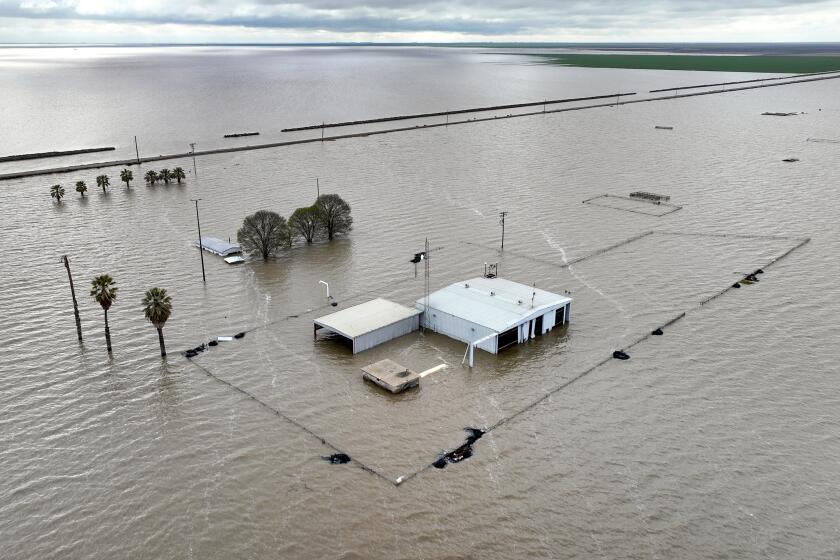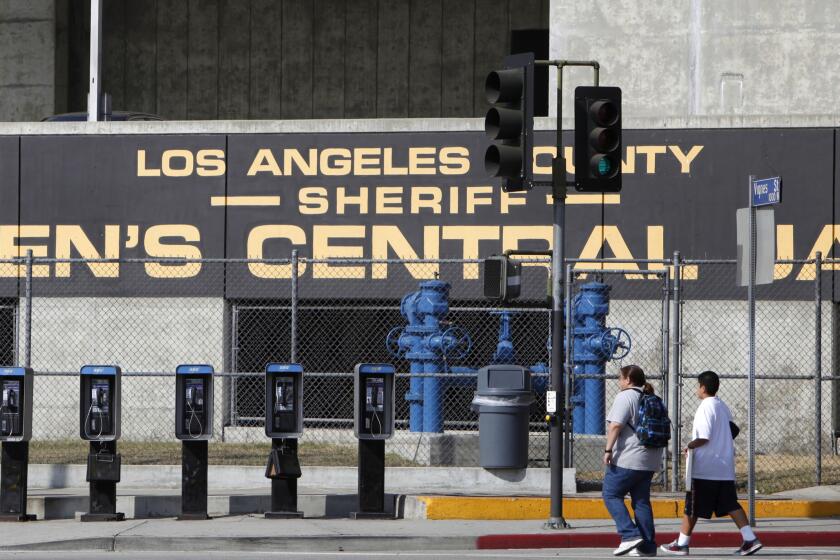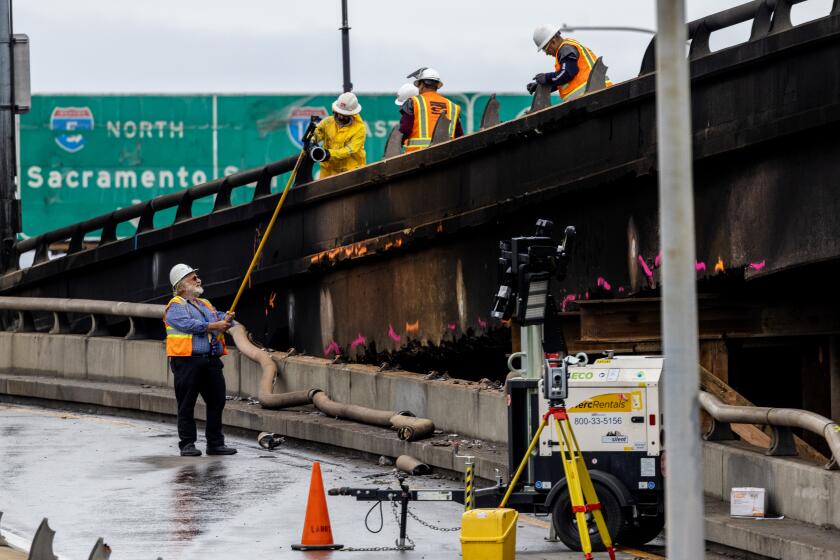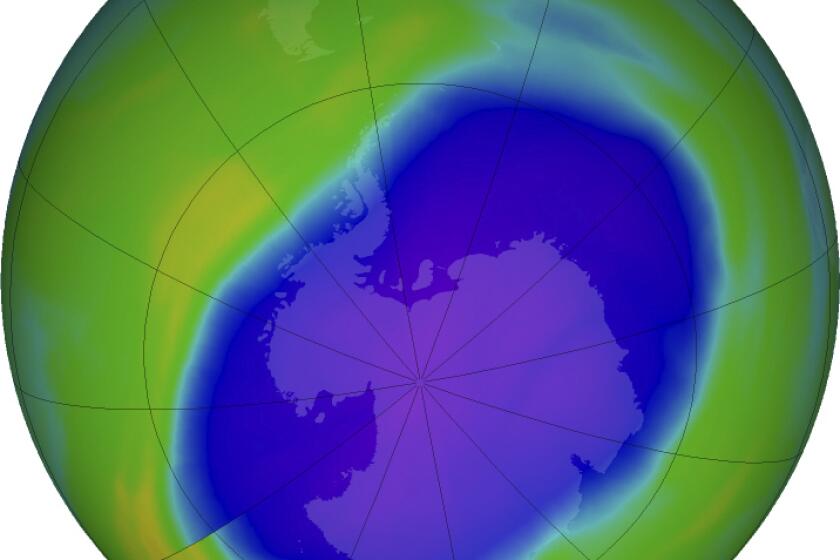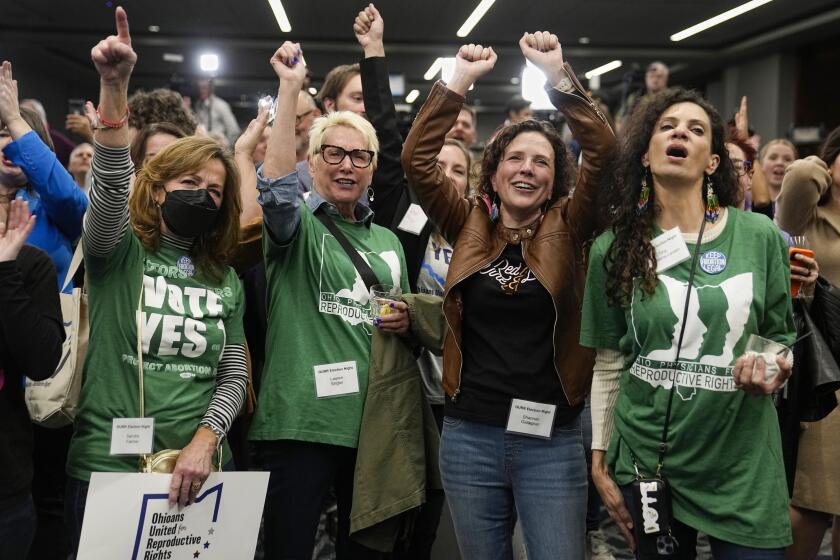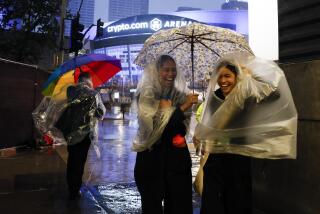Editorial: Snow, cleaner cars, Barbie and other ‘gifts’ we received in 2023
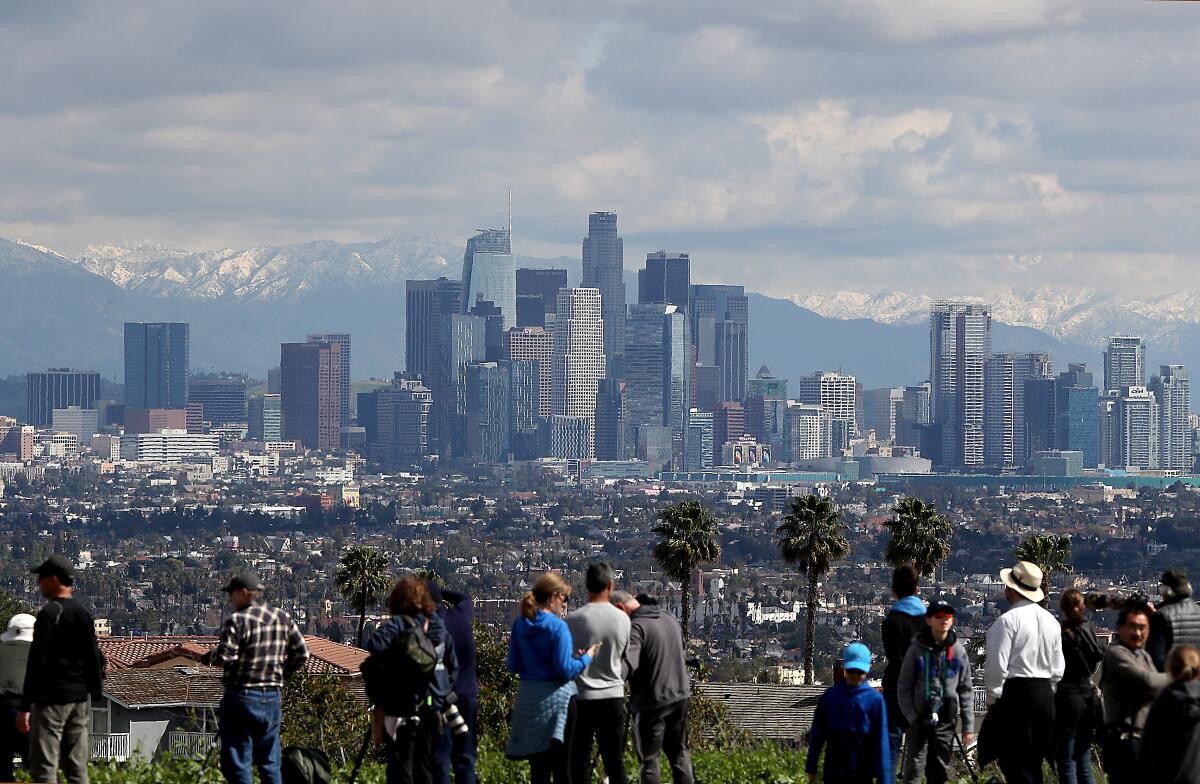
Today Christians around the world celebrate the birth of Jesus by giving gifts, which has become a central part of the holiday. But not all gifts are tangible or made on Dec. 25. In fact, the best are actions rather than objects, and received when we weren’t expecting them. Here are some of our favorite “presents” from 2023.
Water
Rain and snow this year came in such abundance that the precipitation broke records and ended more than a decade of nearly unbroken drought. It quenched our thirst, returned life to a desiccated land and awed us with rare phenomena such as the return of the superbloom and the long lost Tulare Lake. Still, the rain and snow brought hardships, too, such as flooding to some communities.
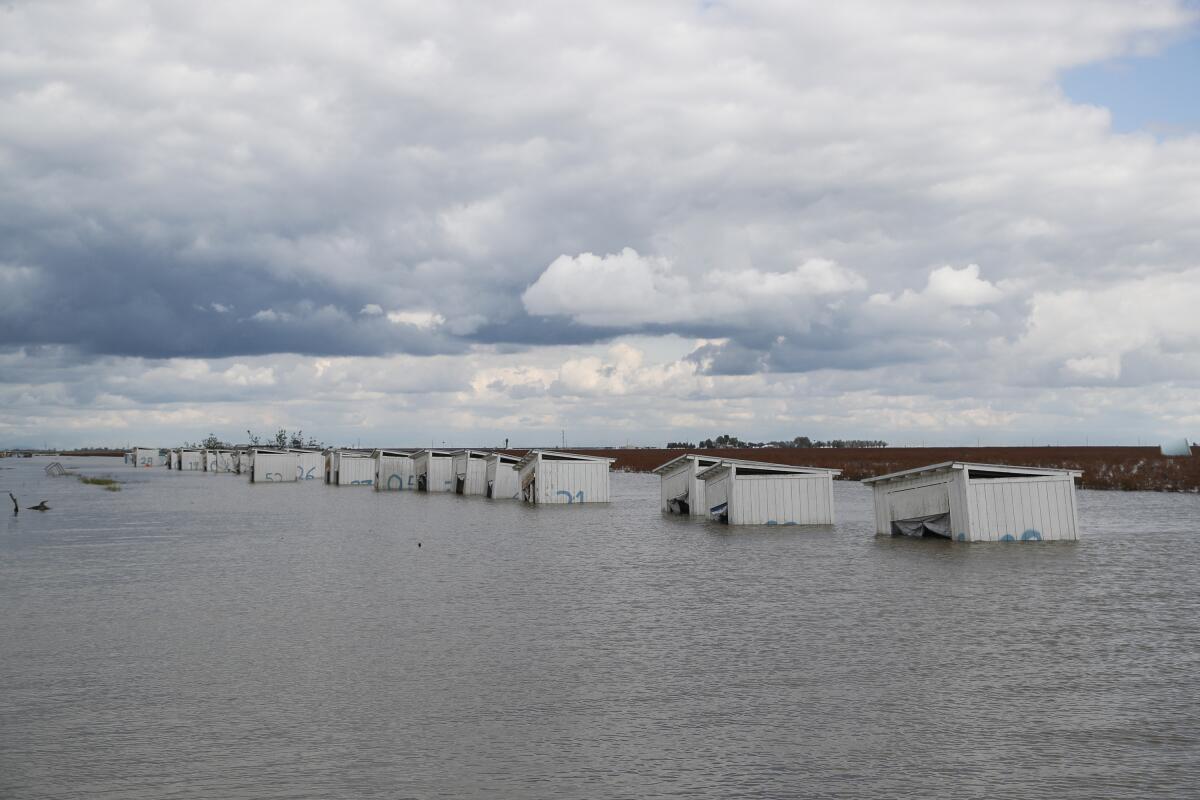
Tulare Lake threatens to drown us while the Colorado River leaves us dry and thirsty. Welcome to the new California.
A resilient economy
Remember how economists said a recession was inevitable in 2023 (after one failed to materialize in 2021 or 2022)? Well, it didn’t happen, though things got a little scary for a time last spring with the failure of three regional banks. Consumer prices are still high, but they have stabilized. The U.S. is ending the year with lower inflation than we started with, and a stock market that has rebounded on the prospect of no new interest rate hikes and rate reductions next year.
Falling crime
The national plunge in violent crime was a welcome, if widely unacknowledged, gift in 2023. Robbery and murder dropped from the previous year in California and around the nation, according to figures tabulated and reported by the Federal Bureau of Investigation and other organizations.
On Oct. 1 Los Angeles County transitions to a new way of administering pre-arraignment justice that doesn’t use cash bail for most crimes.
Curbs on money bail
The Los Angeles Superior Court severely limited the use of money bail between arrest and arraignment for nonviolent crimes despite howls of protest from law enforcement agencies and a lawsuit by more than a dozen cities, who continue to insist the program will increase crime. It hasn’t.
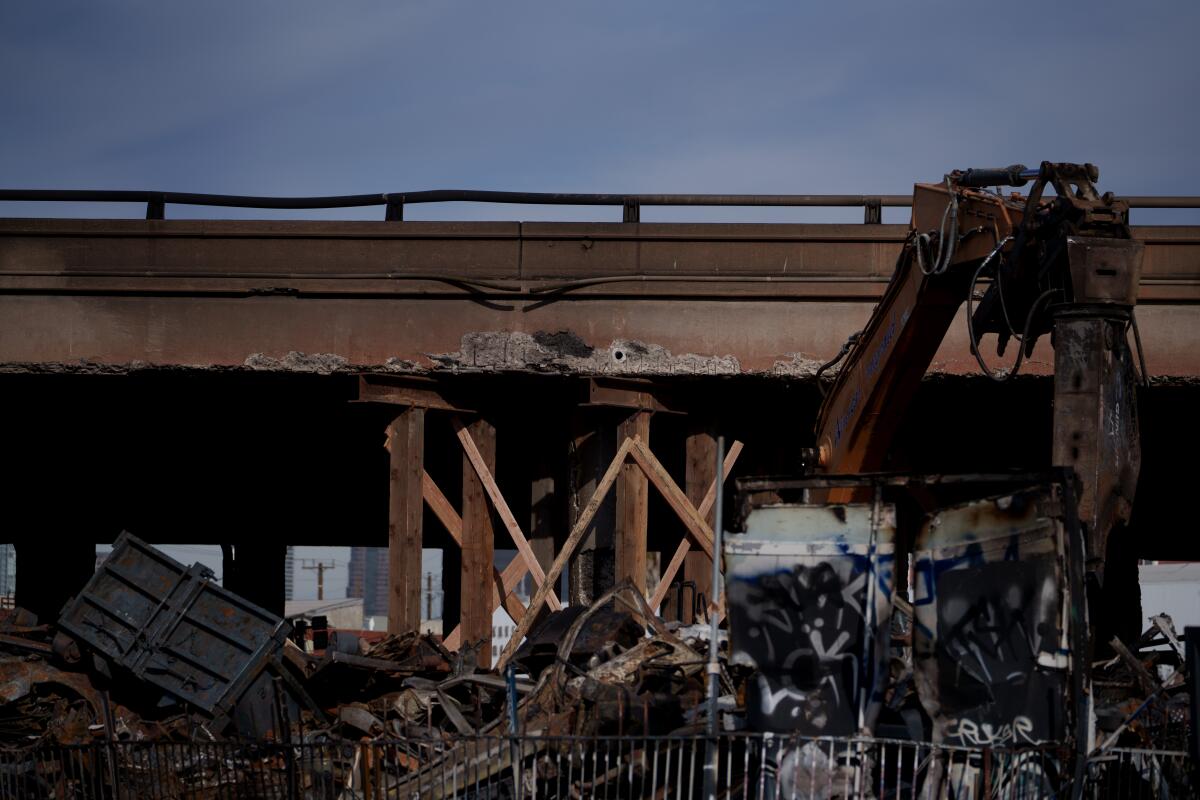
A speedy freeway fix
After a fire in a pallet yard damaged a section of the 10 Freeway in downtown Los Angeles, it looked like the route would be closed for weeks or months for repairs, throwing traffic in one of the most congested areas into chaos. But the Palletpocalypse did not come to pass. The structural damage wasn’t as bad as anticipated, and Caltrans and contractors worked overtime to get the road fixed and reopened in a little over a week. The fast turnaround is a testament to what is possible when leaders put their energy, organizations and funding toward delivering quick results.
The rapid fix of the damaged highway in downtown L.A. shows what’s possible when leaders put their energy, personnel and funding toward quick results.
A healing stratosphere
In a rare bit of unadulterated good news for planet Earth, we learned this year that the ozone layer, the shield-like layer in the stratosphere that protects us from ultraviolet radiation, is healing so rapidly that it’s now on track to be restored to 1980s levels over much of the planet by 2040. This recovery, which is the result of the global ban on ozone-depleting chemicals, shows what can happen when the world’s nations come together to take collective, sustained action against an environmental threat. Now we just need to do the same for greenhouse gas pollution.
The healing ozone layer offers hope for the fight against climate change. But only to an extent. Because curbing greenhouse gas emissions is a much more encompassing task, requiring us to wholly transform what powers the global economy and overcome powerful, entrenched fossil fuel interests.
Cleaner cars
Californians are starting to move to electric vehicles en masse. The latest figures show that about 1 in 4 new car sales in the state were zero-emission. There’s still a long way to go toward making EVs more affordable and accessible to people of all income levels — we can’t all afford Teslas after all — but the surging popularity of electric cars is a promising trend that will help slow climate change and improve air quality.
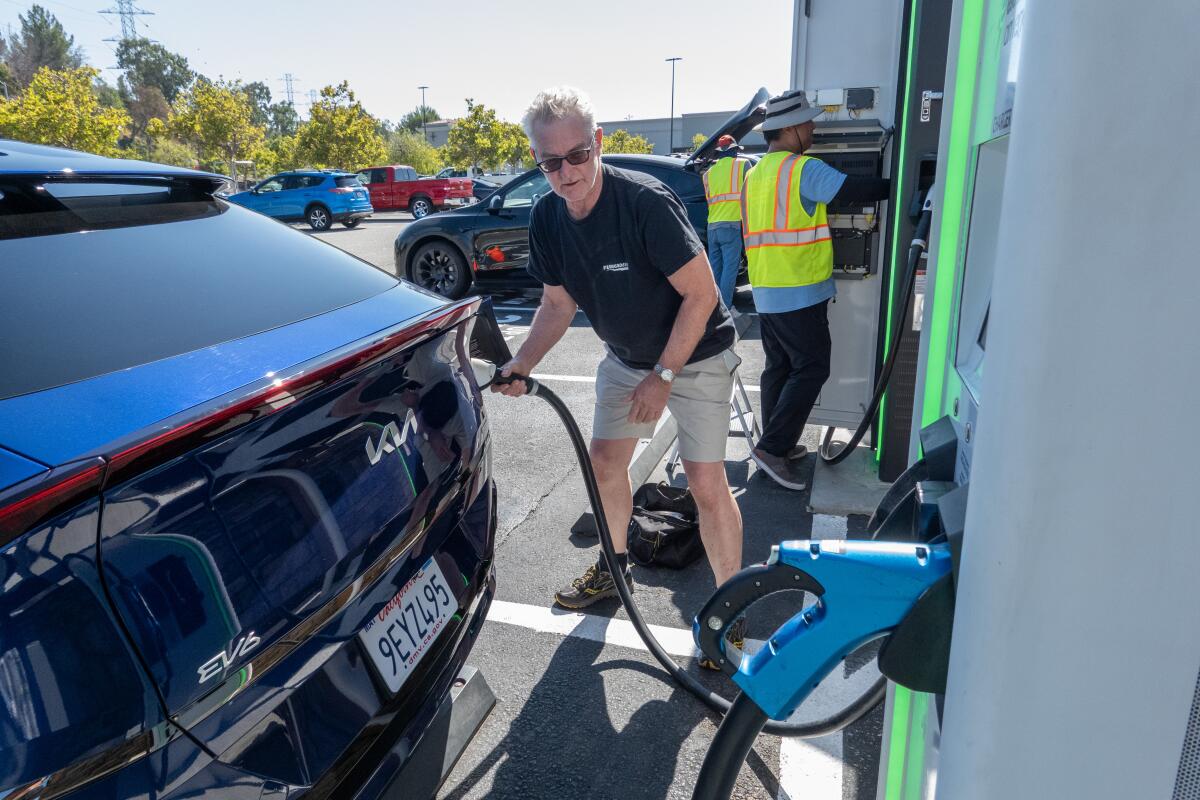
Reproductive rights
Ohio voters gave residents in that state the gift of reproductive freedom — or at least the possibility of it. In a conservative state with a six-week abortion ban (temporarily blocked by the courts), Ohio voters resoundingly passed Issue 1 in November, enshrining the right to abortion into the state constitution. It wasn’t easy. First they had to vote down a sneaky measure put on an August special election ballot by antiabortion state legislators that would have raised the vote threshold for passing a constitutional amendment. Then abortion rights advocates had to battle a misinformation campaign waged against Issue 1. It was all a reminder of how fiercely people will fight to protect bodily autonomy.
Voters in yet another conservative state have enshrined the right to abortion and reproductive choice into their state constitution.
Billionaire Barbie
The exuberant “Barbie” movie about a doll’s life opened in July and by September had skyrocketed to a box office take of more than $1.4 billion, eventually becoming the highest-grossing movie on the planet for the year. It also made its director, Greta Gerwig, the first sole female director to have a movie top the billion-dollar mark. The movie broke a bunch of other records for Gerwig, for the studio and for toys come to life — and it showed Hollywood how powerfully women can command a movie.
More to Read
A cure for the common opinion
Get thought-provoking perspectives with our weekly newsletter.
You may occasionally receive promotional content from the Los Angeles Times.
